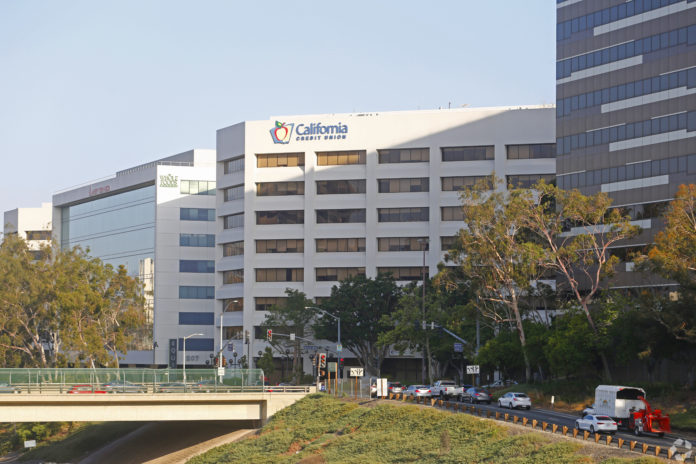Not long after Gov. Gavin Newsom first issued his stay-at-home order in March, the California Credit Union League, the industry’s trade association in the state, took the initiative to help its institutions’ members weather the incipient public health emergency and its sudden economic impact — and those relief efforts extended to credit unions in the Los Angeles area.
“When we started seeing the impacts of unemployment, that concerned us greatly,” said Steve O’Connell, president and chief executive of Glendale-based California Credit Union, which is a member of the state trade association.
“We actually got together with our trade association, and we agreed early on as an industry in the state of California that we would create 90-day deferments on all loan products,” he continued. “It wasn’t something that was required by the state legislators or by the governor. We just agreed with the governor’s office.”
The 90-day deferments on consumer loans were just one way credit unions in Southern California assisted members that suddenly found themselves unemployed and unable to meet their auto or mortgage payments.
Before Newsom even made a major financial relief announcement in late March, credit unions had already agreed to a number of measures aimed at helping members with the Covid-19 fallout.
“We were asked by Gov. Newsom’s office to work with his team upon the declaration of the stay-at-home orders,” said Diana Dykstra, president and chief executive of the CCUL.
“Prior to the governor’s official announcement on mortgage forbearances, skip-payments on consumer loans and fee waivers, credit unions had already begun to offer relief to their members and continued doing so after the governor’s request,” she added.
Soon Newsom announced that more than 200 credit unions and banks in the state had committed to providing a 60-day moratorium on foreclosures, waiving mortgage-related late fees and stopping the reporting of late payments to credit agencies.
Shock to the system
Institutions provided emergency loans as well. Glendale-based Los Angeles Federal Credit Union, for instance, offered loans of up to $5,000 to help members pay bills or cover other urgent household needs. Interest and payments were deferred for up to 90 days.
“We’re a cooperative industry,” O’Connell said. “We’re member-owned. This is the sort of thing we do.”
In addition to offering emergency loans of up to $10,000, Anaheim-based Credit Union of Southern California also helped its employees. It decided to give $1,000 to every one of them, regardless of how long they had been with the institution, in order to help buffer them against financial hardships at home, according to the Credit Union National Association.
“Disruptions from the coronavirus are causing financial strain for our employees and their families,” Dave Gunderson, CU SoCal’s chief executive, told the association. “We want to provide help early on to help ease some of these burdens.”
While California Credit Union was more than on board with the initiatives, it still produced quite a shock at first. The institution had been operating with less than 1% of its loans in delinquency, but the deferral program drove that figure up to 13% overnight. That represented around 10% of the credit union’s $3.5 billion in assets.
“At the onset, it was alarming because we didn’t know how long this was going to last,” O’Connell said.
It wasn’t easy for the business, either. CCU had to put additional reserves in place to protect against loan losses, and its net income declined as it was also waiving more fees.
But CCU weathered the initial storm and was able to provide members with relief on the business loan side as well.
Many of CCU’s members took out Paycheck Protection Program loans. Interestingly, many nonmembers did, too. The credit union received numerous calls from people who were having trouble getting those loans from commercial banks, and it helped everyone who qualified.
“We had a lot of nonmembers that became members,” O’Connell said. “We didn’t turn down anybody who applied for a PPP loan so long as they met the guidelines.”
Stronger than expected
Six months since the start of the pandemic, O’Connell says some CCU members continue to deal with economic challenges caused by layoffs or furloughs, and those who own small businesses are having a tough time paying their consumer loans.
Business owners in hospitality are particularly burdened given the public health restrictions, although they don’t account for a large percentage of the CCU’s loans. “Those folks struggle a lot more,” O’Connell said. “That’s probably where we see the weakness.”
Yet overall, the great majority of the credit union’s members are doing much better only half a year later. The deferral program has now expired, but merely 1% of the loans that had been put off are still delinquent.
Additionally, a recent survey conducted by the credit union found that only 3% of its roughly 200,000 members were experiencing a “significant impact” related to Covid-19.
O’Connell also noted that mortgage lending is strong while auto lending has improved in the past couple months, recovering to similar levels as this time last year.
“It’s a good sign to us that our members are actually coming through this stronger than we were expecting early on,” O’Connell said. “We’re not saying that nobody’s going to be harmed, but it’s certainly not as big as 2008 by our measurement at this point.”

